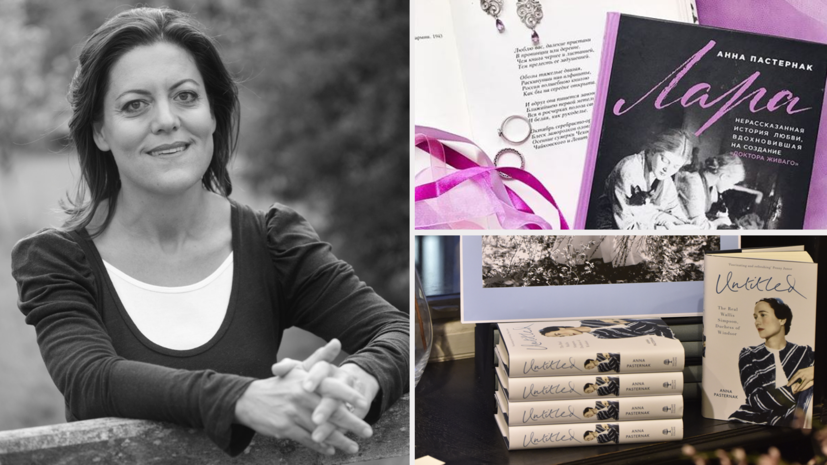
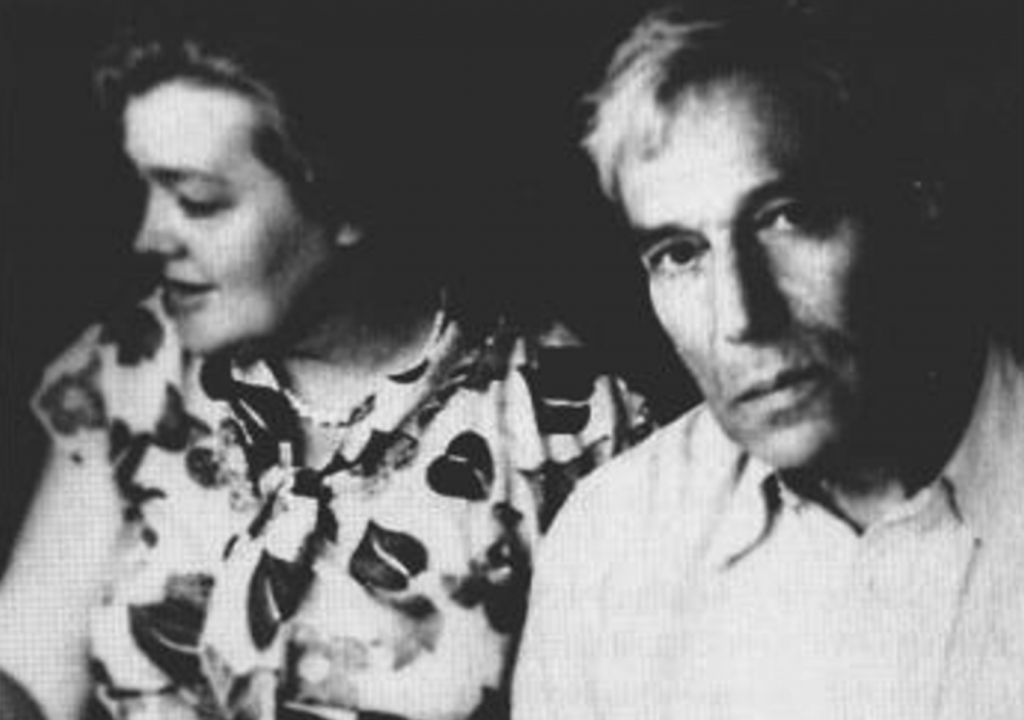
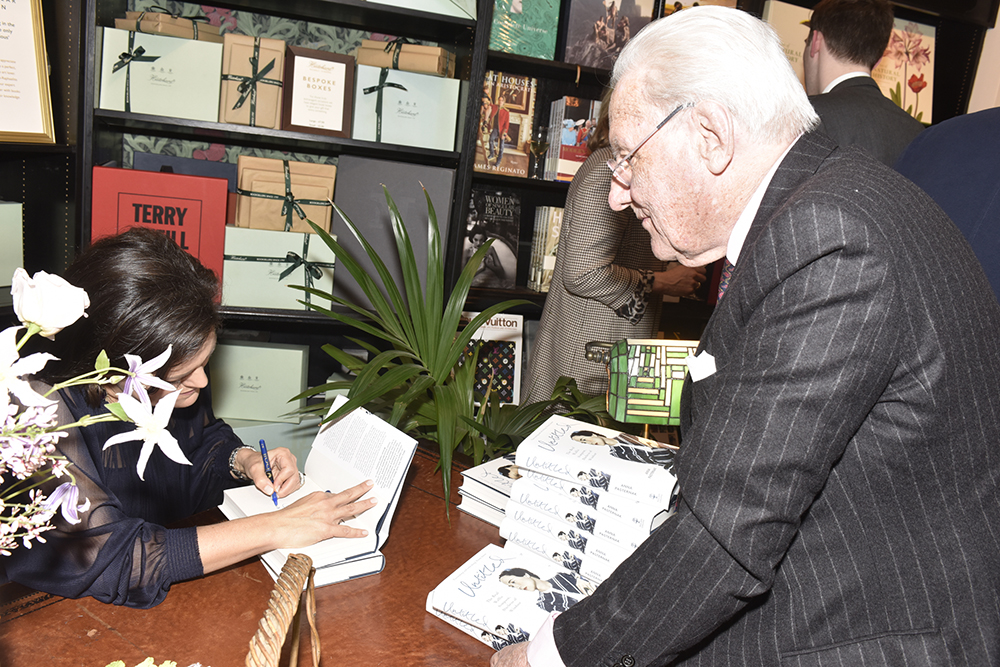
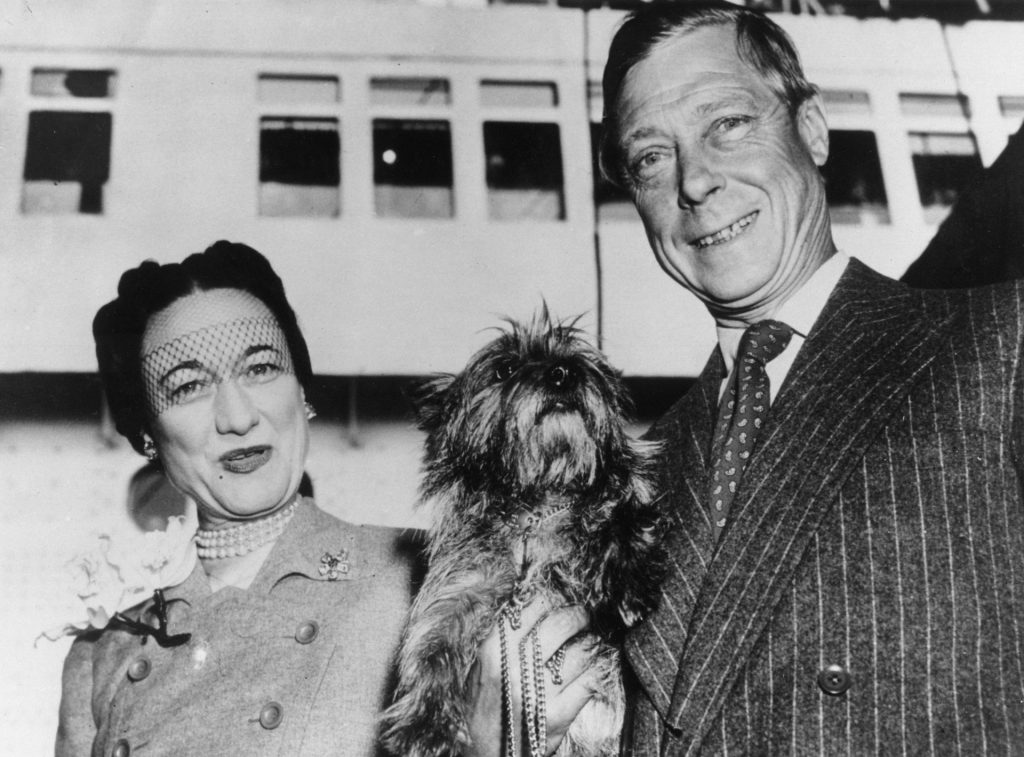
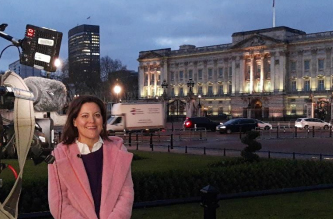
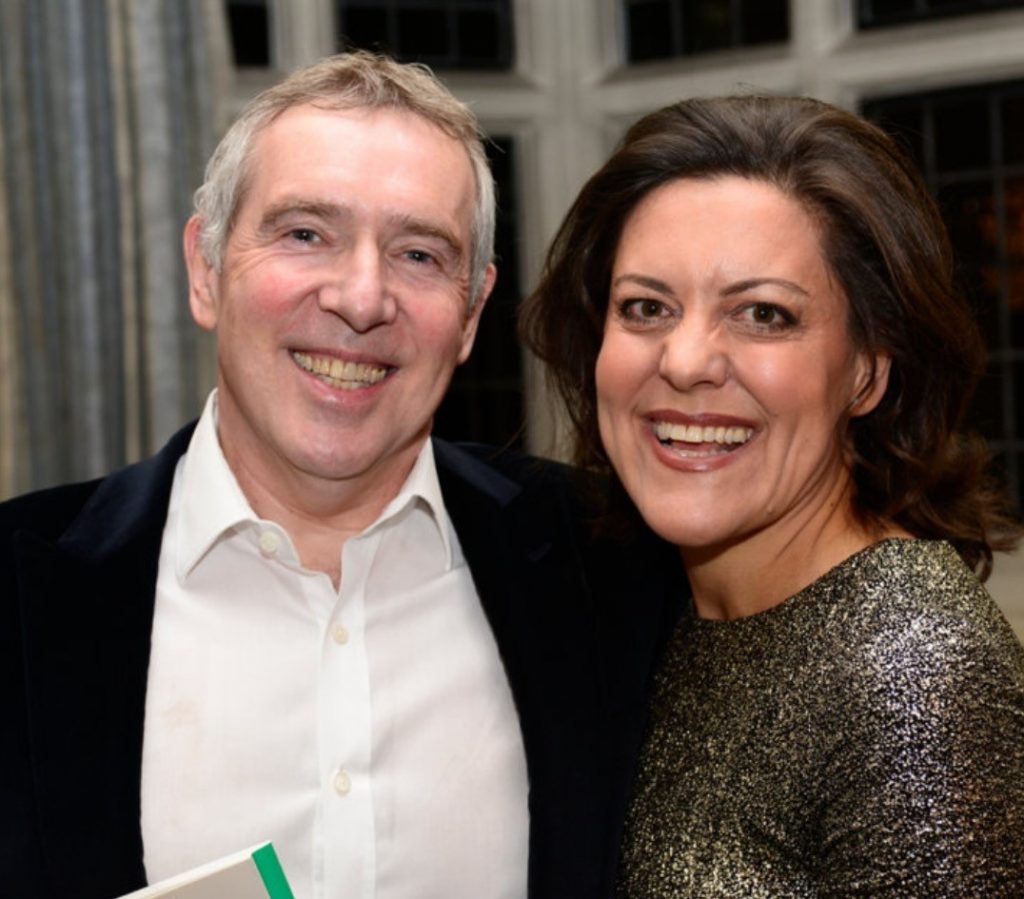
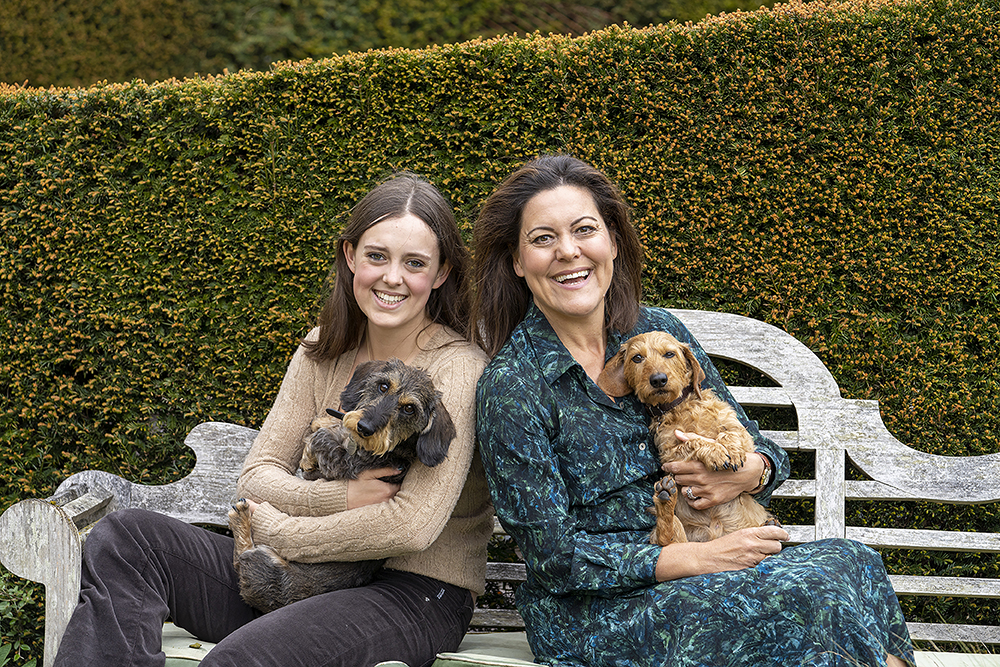
Anna Pasternak is a British writer and journalist with Russian roots. Her great-uncle is Boris Pasternak, Nobel Prize laureate in literature. For several years now, in the press, Anna has been called “the biographer of the British court”. In an interview with RT, Pasternak told how, against the wishes of her family, she wrote a book about Olga Ivinskaya, why she decided to devote herself to the rehabilitation of women who were unfairly treated by history, and why Meghan Markle cannot be compared with Princess Diana.
– Anna, how did it happen that you became a “biographer of the British court”, as they call you in the press?
By accident! I first wrote about Princess Diana, 27 years ago. Then, two years ago my book on Wallis Simpson was published. Researching it, I realised that not much has changed in the House of Windsor, in terms of the way that the monarchy is run, since the abdication of Edward VIII. Recently, writing about Meghan Markle and her relationship with Prince Harry, I have seen the echoes of history repeating themselves in the British court.
– Your book ‘Lara: The untold love story that inspired the creation of Doctor Zhivago’ was a great success. You are Boris Pasternak’s grand-niece, while your book is about Olga Ivinskaya, who, as we know, was not particularly liked by the Pasternak family. Why did you choose to write about her?
I chose to write about Olga Ivinskaya because I had an instinctive sense that she was mistreated by the Pasternak family. When I was 22, I interviewed my grandmother, Josephine (Boris’s sister) about Olga Ivinskaya, and she was strangely dismissive about Olga. Josephine hated the idea of her so much that she refused even to utter her by name, calling her “that temptress” instead.
My family, with their staunch moral code, could not accept that Boris has two wives and then a public mistress, so they discredited Olga. The more I thought about Olga and then researched her, I could see that she played a pivotal role in Boris’s life.
I was the first biographer to make the claim that if it hadn’t been for Olga Ivinskaya, not only would Doctor Zhivago never have been completed, it would never have been published. To me, she is the heroine of the story.
And yet, she and her daughter, Irina, were never truly acknowledged by my family. It took me five years to persuade Irina to speak with me, as she was so suspicious of me as a member of the Pasternak family and thought I was going to discredit her mother. When Irina finally read my finished book, she sent me an email that made me weep, saying that “if her mother were alive today, she would have loved me like her nearest soul” because she was so grateful that I had rehabilitated her in this way. I felt proud to correct an ancestral wrong and position Olga where she deserved to be in Boris’s life and legacy.
– Was that your first book?
No, in 1994 I wrote Princess in Love about Princess Diana’s relationship with Major James Hewitt. Interestingly, I was already writing the truth about a woman, which the public did not want to believe – a bit like with Wallis Simpson and Olga Ivinskya.
– Was it after this publication that you moved on to writing about the royal court? Did you consider the story of Wallis Simpson to have much in common with the one of Olga Ivinskaya?
After writing about Olga Ivinskaya, in which the critics said that I had rehabilitated a woman wronged by history, I decided that I wanted to spend the rest of my life rehabilitating women whom history had misrepresented. It was while watching The Crown, and their inaccurate depiction of Wallis Simpson, that I decided to write about her.
I am so glad that I did because the Wallis that I encountered was nothing like the myth that has developed about her over the last eighty years. Again, it was wonderful and a privilege to set the record straight.
– Was the book about Diana written during the life of the princess?
Yes, my book was published in 1994, and Diana died in 1997.
– How did the members of the royal family react to the letters published in it?
– Diana’s letters to James Hewitt were not published in their entirety for copyright reaons. I read them all and then wove the essence of them through the text.
– You seem to have decided to devote your life to restoring the good names of women who played their roles in history, but were not well received by their contemporaries, is it so?
Absolutely right. This is exactly what I have decided to do and it is deeply satisfying. The difficulty is choosing the next woman to write about. Because I come to love my women and need to really feel for them and their plight – spending at least two years with them in the process of researching and writing the book – I have to chose them very carefully. I haven’t found my third woman yet! I have had a number of false starts and realised in research, that I didn’t like the women enough to fight for them through my writing, in this way.
– Are you currently focused on Meghan Markle?
Only in the sense that her story has echoes of Wallis Simpson’s – both were American divorcees who married into the British royal family with dramatic results. But there the similarities end.
Wallis Simpson was far more dignified, loyal to the Crown and sophisticated than Meghan Markle. The Duchess of Windsor had a much more difficult time at the hands of the royal family than Meghan Markle, yet she never once complained about it or sought revenge on them. Unlike Meghan who never stops bleating about perceived injustice against her.
– Recently, Prince Harry and Meghan Markle gave an interview to Oprah Winfrey. Many have noticed similarities in Meghan Markle’s tone to the interview that Princess Diana gave to Martin Bashir for his Panorama Special on 20 November, 1995. Do you see these similarities as well?
No. I think Meghan would have liked people to think that she was similar to Diana but Diana would never have been so disrespectful to the institution of the monarchy, which her sons were born into. Diana was totally authentic in Panorama, whereas there was an artifice to Meghan and her delivery.
– Have you thought about writing a book about the fate of Meghan Markle?
I’m not writing a book about Meghan and have no wish to. I do not think she is complex, heroic or interesting enough.
– Have you met her?
– No, but I have friends who have – and a friend who went to her wedding.
– Have you have the opportunity to talk with any member of the royal family?
– Yes, I have met the Duke and Duchess of York, who could not have been kinder to me. And I am friends with some of the younger cousins of the Queen.
– On April 9 2021 Prince Philip, Duke of Edinburgh died. What is your opinion of him and would his biography be interesting to research as well?
– I felt incredibly sad at the passing of the Duke of Edinburgh, because his death heralds the end of any era. .
He was an exceptional man who was secure enough within himself to put the Queen and her country ahead of himself, yet he never seemed emasculated. He was true to himself and a tremendous visionary, pioneer and moderniser.
Although he saw ahead, he also honoured tradition. His selfless attitude to service and duty is something that the younger royals, who are so wrapped up in themselves and their self-image, would do well to heed. I wouldn’t want to do a biography on him because he does not need rehabilitating, as his passing has shown us. History has treated him well.
Prince Philip was named an outstanding statesman in the Russian Imperial House Alexander Zakatov, Director of the Chancellery of the Head of the Russian Imperial House, expressed his condolences over the death of the British
The outpouring of grief in the UK and the world, shows the gratitude that we all feel for everything he sacrificed in his own career and life, to support the Queen.
– While this interview was being prepared, another date came up – April 21, the 95th birthday of Queen Elizabeth II. What can you say about her as the main figure of the royal court? Are you thinking about writing her biography?
The Queen has been the most exemplary monarch, hence the great concern for her and affection for her that we currently witness at the death of her husband. She has always put duty first and we admire her for this.
Again, I would not want to write her biography from the perspective that she does not need rehabilitating but it would be interesting to see if one could uncover her emotional side.
She has been so stoic and so guarded, never to reveal too much of herself, that it would be fascinating to discover her deeper personality; her fears, frailties and vulnerability. But I am not sure that such an emotional expose of this outstanding woman would ever be possible.
– It seems that now you are more involved in writing books, but you also have many years of journalistic experience. Do you still write for any outlets?
-Yes, I still regularly write for the British and American press, and at times for the Russian version of Tatler magazine. I mainly write for The Telegraph and Tatler magazine these days.
– You have written both non-fiction works and novels. What is dearer to you?
Definitely non-fiction. I do not have my great uncle’s aptitude for fiction! I really enjoy researching non-fiction.
– How many books have you published in total? How many have been translated into Russian? How many are you working on?
I have only published four books in total and two of those were translated into Russian; Princess in Love and Lara.
Lara is currently in the long process of being adapted for film or television and I dearly hope that this will be shown in Russia.
– I found another book of yours in Russian translation – Daisy Dooley Does Divorce.
– Wow! I did not know that that had been translated into Russian! I wish I could get a copy in Russian! This was a humorous, fictional account of my first, brief marriage.
– Your husband is a psychotherapist. Does he help you to better understand the characters of your heroines?
Absolutely. He has helped me understand many emotional facets of human behaviour and why so much of our behaviour is driven by the unconscious. He is a tremendous support to me in my career.
– Do you speak Russian?
Sadly I do not speak Russian! I dearly wish I was bilingual but when my grandmother left Russia in 1922, to go to Germany, she did not speak Russian in the home after that. My father was brought up fluent German. I did Russian at school but am not a gifted linguist. It’s my biggest regret that I am not fluent Russian speaking and I wish that I was.
– What is your daughter interested in?
– My daughter is very interested in acting. I hope that if Lara comes to the screen, she will have a role in it. I think she would be perfect to be the young nurse, who took Boris love notes from Olga when he was on his death bed in Peredelkino. I find the end of the book so moving.
– Could you tell us more about this character – about the young nurse?
The nurse, Marina Rassokhina, was sixteen years old and devoted to Boris Pasternak. She first nursed him in hospital in Moscow, then went to Peredelkino, where she tended him with an older, more experienced nurse, Marfa Kuzminichna, as he was dying. Because the doctor had ordered that Boris needed to rest and that he was not supposed to have any access to writing materials, Marina, who did not even dare hand him the pencil stub on his bedside table, would pass messages from Boris to Olga. She would leave her shifts and go and meet Olga, away from the family dacha, to convey Boris’s love for Olga. Both Olga and her daughter, Irina, were indebted to this kind nurse, whom they said was “always smiling.” She understood the delicacies of familial relationships with Boris being at the family home with his second wife, while his adored Olga was kept away from his death bed. All the nurses adored Boris but he had a special affection for Marina.
– Do you visit Russia? Would you be interested in visiting any particular places and to show them to your daughter?
I have been to Russia five times, when I was researching my book, Lara, twice with my husband and once with my daughter. She absolutely loved Moscow and going to Peredelkino. She also loved the caviar and started eating it on eggs for breakfast! We really enjoyed Tolstoy’s house in Moscow and she loved seeing the Faberge eggs in the Kremlin and visiting the beautiful Metro. We have so many good memories of Russia and once the pandemic has died down, I hope to visit again. I feel Russian in my soul, so it is a form of home coming for me.
